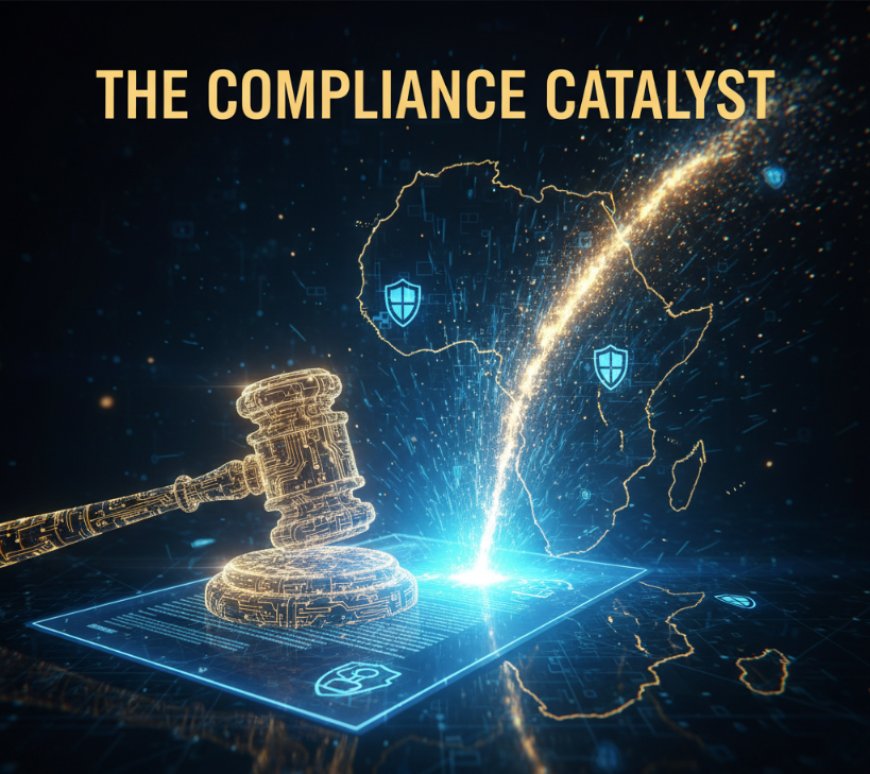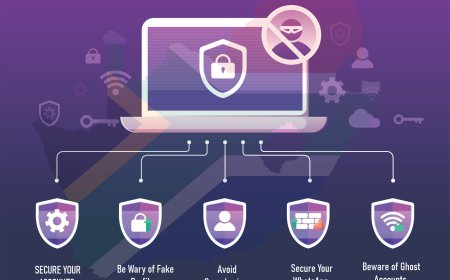The Compliance Catalyst: How Data Protection Laws (POPIA, CDPA, DPA) are Fueling Africa's Cybersecurity Boom
An analysis of how data protection laws like South Africa's POPIA, Zimbabwe's CDPA, and Ghana's DPA are creating a surge in demand for cybersecurity services across the continent.

Across Africa, a digital revolution is unfolding. As economies digitize and connectivity expands, businesses are unlocking unprecedented opportunities for growth and innovation. But this rapid transformation comes with a significant risk: a vastly expanded attack surface for cybercriminals. For years, the decision to invest in robust cybersecurity was often a discretionary one, balanced against other business priorities. Today, that is no longer the case. A powerful new force is reshaping the landscape, turning cybersecurity from a "nice-to-have" into a non-negotiable, board-level imperative: the law.
The enactment and enforcement of comprehensive national data protection laws across the continent are acting as a powerful catalyst, creating a sustainable, high-growth market for cybersecurity services. By examining the impact of three key pieces of legislation—South Africa's POPIA, Zimbabwe's CDPA, and Ghana's DPA—we can see how compliance has become the single most important driver of the cybersecurity boom.
The Legal Foundation: Turning Privacy Rights into Security Mandates
At their core, these data protection acts are designed to protect the fundamental right to privacy for individuals. However, in doing so, they create a series of direct and unavoidable obligations for any organization that handles personal data. These legal mandates translate directly into the language of cybersecurity.
Key principles common across these laws include:
- Security Safeguards: Organizations are legally required to implement "appropriate technical and organisational measures" to protect personal data from unauthorized access, loss, or destruction. This is a direct mandate for cybersecurity controls like firewalls, endpoint protection, encryption, and access management.
- Breach Notification: If a data breach occurs, organizations are required to notify the relevant data protection authority—and often the affected individuals—within a strict timeframe. Zimbabwe's CDPA, for example, demands notification within just 24 hours of discovery. This necessitates a mature incident response capability, including detection, investigation, and communication plans.
- Accountability: The laws place the responsibility for compliance squarely on the shoulders of the data controller (the organization), making them accountable for demonstrating that they have taken all necessary steps to protect data.
By codifying these requirements, governments have fundamentally altered the risk calculation for businesses. Non-compliance is no longer just an IT issue; it's a significant business risk, carrying the threat of hefty regulatory fines, legal liabilities, and severe reputational damage. This has ignited a surge in demand for cybersecurity expertise.
Case Study 1: South Africa's POPIA — A Mature Market Response
South Africa's Protection of Personal Information Act (POPIA), which came into full effect in July 2021, provides a clear picture of how a data protection law can shape a mature cybersecurity market. Today, POPIA compliance is considered "table stakes"—a baseline requirement for doing business.
This has created a sophisticated demand for services that go beyond simple technology sales:
- Specialized GRC Services: Firms like VeraSafe and Labournet offer end-to-end POPIA compliance programs, from initial gap assessments and policy drafting to staff training and vendor management.
- Integrated Solutions: Major providers like Vodacom Business explicitly market their security awareness platforms as tools to help businesses prove POPIA compliance, demonstrating that the law is a key part of the customer conversation.
- Risk-Based Advisory: Companies such as CyberSec Consultants and Fort Knox Cyber Security frame their offerings around the "Protection of Personal Information," helping clients mitigate the risk of regulatory fines and loss of customer trust.
In South Africa, POPIA has successfully elevated the cybersecurity conversation from the server room to the boardroom, creating a competitive market where deep expertise in both technology and regulatory compliance is essential.
Case Study 2: Zimbabwe's CDPA — An Urgent Market Catalyst
Zimbabwe's Cyber and Data Protection Act (CDPA) of 2021 is a more recent, and in some ways more stringent, piece of legislation that is acting as an accelerant for its local cybersecurity market. The Act's tough requirements, including mandatory licensing for data controllers and the exceptionally tight 24-hour breach notification window, have created an immediate and urgent need for specialized guidance.
This has led to the emergence of a new breed of highly focused providers:
- Compliance as a Service: The most striking example is StoneGuard, a company founded in 2023 whose entire business model is built around the CDPA. It offers "Data Protection as a Service" (DPaaS), a comprehensive solution that includes CDPA gap analysis, an AI-powered compliance platform, and outsourced Data Protection Officer (DPO) services—a direct and innovative response to a specific market need created by the law.
- Regulatory Alignment: Established providers are also quickly adapting. Logikmind, a regional player with a Harare office, now explicitly lists "Policy & Regulatory Alignment" for the ZDPA (Zimbabwe Data Protection Act) as a core part of its cybersecurity and compliance portfolio.
The CDPA demonstrates how a single piece of legislation can instantly create a new, high-demand service vertical, making deep regulatory knowledge a powerful competitive advantage.
Case Study 3: Ghana's DPA — A Multi-Layered Driver
Ghana's Data Protection Act (DPA), in effect since 2012, shows the long-term impact of a foundational data privacy law. Enforced by an active Data Protection Commission (DPC), the DPA mandates key principles like the registration of data controllers and the appointment of Data Protection Supervisors.
However, the Ghanaian market is also shaped by a second layer of regulation, creating unique opportunities for specialists:
- Sector-Specific Mandates: The financial services industry, a critical part of Ghana's economy, is subject to the Bank of Ghana's Cyber and Information Security Directive. This imposes highly specific and technical security controls on financial institutions.
- Niche Expertise: This dual-compliance environment has allowed firms like Databytes to thrive. By advertising their deep experience with the Bank of Ghana's directive, they have carved out a powerful niche, becoming the go-to provider for a lucrative and highly regulated sector.
- Holistic Compliance: Other firms, like the forensic specialists at e-Crime Bureau, design their services to ensure clients meet the requirements of both the DPA and the broader Cyber Security Act, recognizing the interconnected nature of the legal framework.
Ghana's experience shows how a general data protection law, when combined with sector-specific mandates, can create a rich and diverse market for both generalist and specialist cybersecurity providers.
The Unstoppable Momentum of Compliance
Across Africa, the message is clear: data protection legislation is no longer an abstract legal concept but a powerful and tangible force driving the cybersecurity market forward. These laws create non-negotiable business risks that can only be mitigated through strategic investment in security technology, processes, and expertise.
From South Africa's mature ecosystem to Zimbabwe's nascent but rapidly evolving market, compliance is the catalyst. It is forcing organizations to take cybersecurity seriously, creating a sustainable boom for providers who can expertly navigate the critical intersection of law and technology. As more nations across the continent follow suit, this compliance-driven momentum is set to build, securing not only personal data but also Africa's digital future.
What's Your Reaction?
 Like
0
Like
0
 Dislike
0
Dislike
0
 Love
0
Love
0
 Funny
0
Funny
0
 Angry
0
Angry
0
 Sad
0
Sad
0
 Wow
0
Wow
0





































